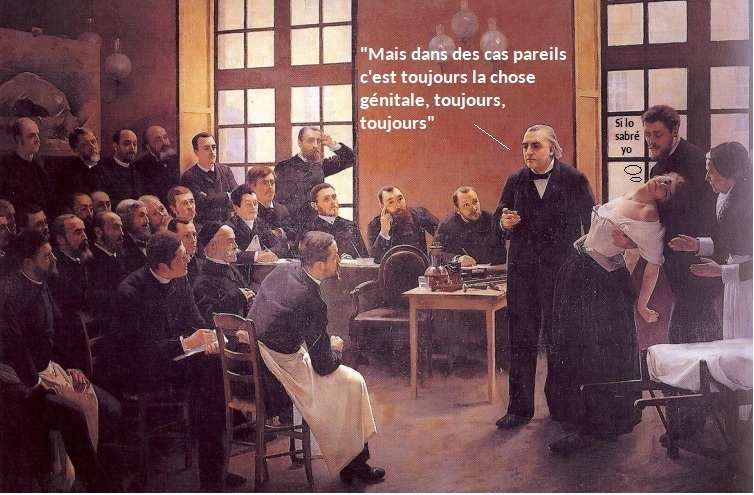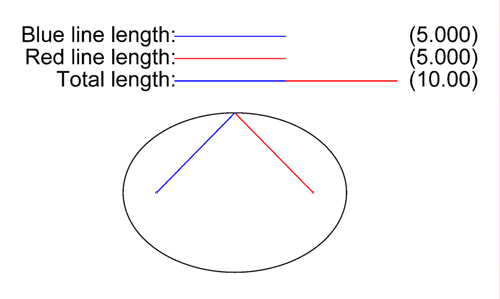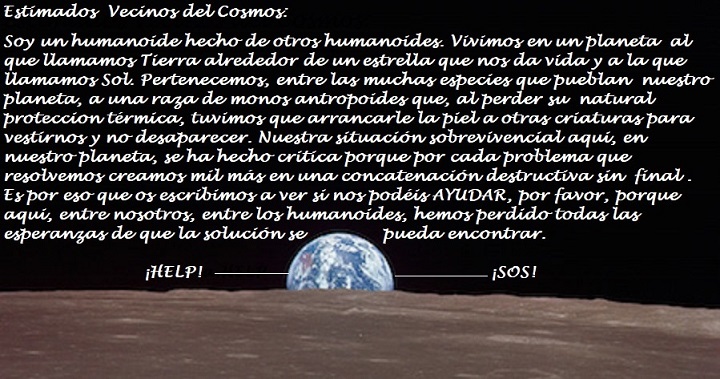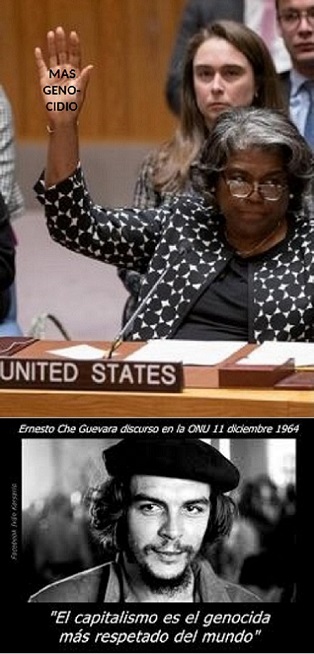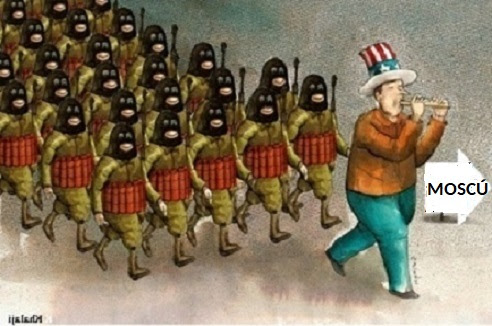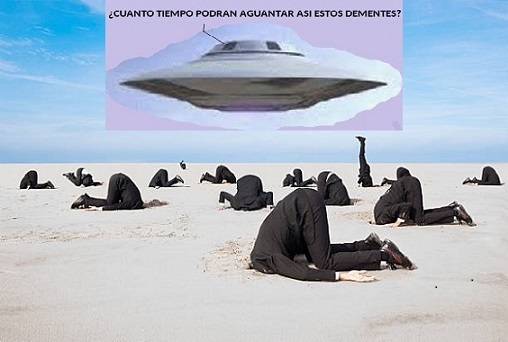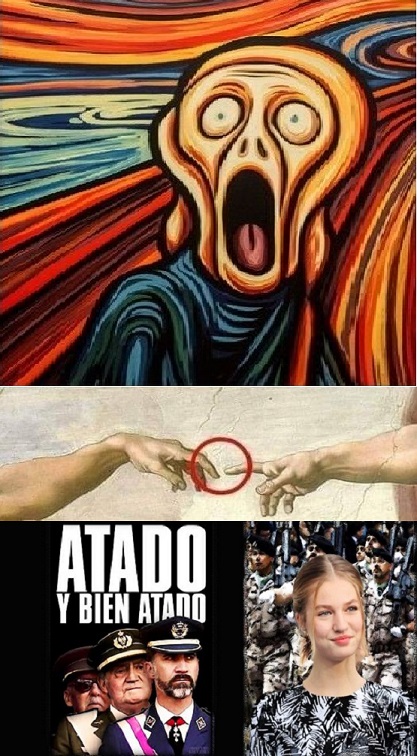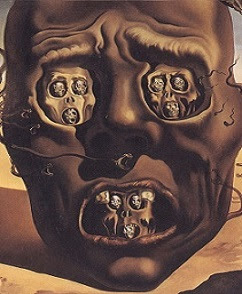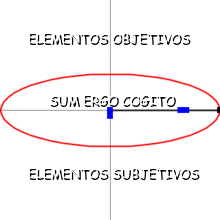THE DESTRUCTION OF REASON
Translated by Peter Palmer
The Merlin Press, London.
(At UCSD, Geisel Library: B2743 .L7813, 1980)
ON IRRATIONALISM AS AN INTERNATIONAL PHENOMENON IN THE IMPERIALIST PERIOD
This book lays no claim whatever to be a history of reactionary philosophy or even a primer of its development. Above all, the author is conscious that the irrationalism, whose growth and expansion into a dominant trend in bourgeois philosophy this book portrays, is only one of the important tendencies in reactionary bourgeois philosophy.
Although there is hardly a reactionary philosophy without a definite irrationalist cast to it, the scope of reactionary bourgeois philosophy is nevertheless far broader than that of irrationalist philosophy in the authentic, stricter sense.
But even this qualification will not suffice to circumscribe our task precisely. Even within this narrower subject-range we are not offering a detailed, comprehensive and would-be complete history of irrationalism, but will simply be elaborating its chief line of development and analysing its most important, most typical stages and representatives. We intend to focus attention on this chief line as the most significant and influential kind of reactionary answer to the great topical problems of the past century and a half.
The history of philosophy, like that of art and literature, is never simply a history of philosophical ideas or even personalities, as its bourgeois historians think. Problems, and the directions in which they may be resolved, are posed in philosophy by the evolution of forces of production, by social developments and the development of class struggles.
Only the observation of these primary motive forces can serve as a basis for tracing the decisive, fundamental lines of any philosophy. If one tries to posit and to solve the interrelations of philosophical problems starting out from a so-called immanent philosophical development, an idealist distortion of the most important interrelations will inevitably come about.
This is true even where a historian shows the necessary knowledge and, subjectively, an honest desire for objectivity. As against this standpoint, of course, the so-called humanistic (geistes-wissenschaftlich) attitude is not a step forward but a step backwards: the distorting ideological starting-point remains, but it is even more blurred and ideologically distorting. One has only to compare Dilthey and his followers with the philosophical historiography of such Hegelians as Erdmann.
To argue thus does not by any means entail, as the vulgar-izers suppose, a neglect of purely philosophical problems; on the contrary. Only such a context can clearly illustrate the difference between important questions of lasting significance and trivial academic hair-splitting. It is just the road leading away from social life and back again which lends philosophical ideas their real breadth and determines their profundity, even in the narrowly philosophical sense.
How far individual thinkers are aware of their position in this respect, of their socio-historical function, is entirely secondary. In philosophy as outside of it, votes are cast not for attitudes but for deeds — for the objectified expression of ideas and for its historically necessary influence. In this sense, every thinker is responsible to history for the objective substance of his philosophizing.
Thus the subject-matter which now presents itself to us is Germany's path to Hitler in the sphere of philosophy. That is to say, we mean to show how this concrete path is reflected in philosophy, and how philosophical formulations, as an intellectual mirroring of Germany's concrete development towards Hitler, helped to speed up the process.
That we are therefore confining ourselves to portraying the most abstract part of this development by no means implies an over-estimation of philosophy's importance in the turbulent totality of concrete developments. But we believe it is not superfluous to add that to underestimate the philosophical driving forces would be at least as dangerous and as little in accordance with reality.
These perspectives will determine our mode of treating the subject-matter. The primary issues, above all with regard to the selection of material, are social genesis and function. It will be our task to bring to light all the intellectual spade-work done on behalf of the 'National Socialist outlook', however far removed (on the face of it) from Hitlerism it may be and however little (subjectively) it may cherish such intentions.
It is one of this book's basic theses that there is no such thing as an 'innocent' philosophy. Such a thing has never existed, and especially not in relation to our stated problem. This is so in precisely the philosophical sense: to side either with or against reason decides at the same time the character of a philosophy as such and its role in social developments.
Reason itself can never be something politically neutral, suspended above social developments. It always mirrors the concrete rationality — or irrationality — of a social situation and evolving trend, sums it up conceptually and thereby promotes or inhibits it.
This social determinant of the contents and form of reasons does not, however, imply a historical relativism. For all the socio-historical conditioning of these contents and forms, the progressiveness of any situation or evolutionary trend is an objective thing operating independently of human consciousness.
Now whether this forward thrust is interpreted as rational or irrational, and affirmed or repudiated as one or the other, is a crucially important factor in the taking of sides in philosophy, and in the class struggle.
To reveal this social genesis and function is of the greatest importance, but in itself by no means sufficient. Granted, the objectivity of progress will suffice correctly to condemn as reactionary an individual phenomenon or orientation. But a really Marxist-Leninist critique of reactionary philosophy cannot permit itself to stop at this.
Rather it must show in real terms, in the philosophical material itself, the philosophical falsity and the distortion of basic philosophical questions, the negation of philosophy's achievements and so on to be inevitable, objectively philosophical consequences of such stances.
To this extent, an immanent critique is a justified and indeed indispensable element in the portrayal and exposure of reactionary tendencies in philosophy. The classic Marxist authors have constantly used it. Engels, for example, in his Anti-Duhring and Lenin in his Empirio-Criticism.
To reject immanent criticism as one element in an overall survey also embracing social genesis and function, class characteristics, exploration of the true nature of society and so on is bound to lead to a philosophical sectarianism, to the attitude that everything which is axiomatic to a conscious Marxist-Leninist is also immediately obvious to his readers. Lenin wrote of the communists' political attitude:
'But the whole point is that one does not regard what is outmoded for us as outmoded for the class or outmoded for the masses.' And this also applies in its entirety to a Marxist presentation of philosophy.
The antithesis between the various bourgeois ideologies and the achievements of dialectical and historical materialism is the self-evident foundation of our treatment and critique of the subject-matter. But to prove in factual, philosophical terms the inner incoherence, contradictoriness, etc., of the separate philosophies is also unavoidable if one wants to illustrate their reactionary character in a truly concrete way.
This general truth applies especially to the history of modern irrationalism. For the latter, as our book will undertake to show, arose and became operative in perpetual conflict with materialism and the dialectical method. In that respect, too, this philosophical controversy is a reflection of class struggles. For it is certainly no accident that the final and most advanced form of idealist dialectics developed in connection with the French Revolution and in particular with its social consequences.
Only after the Revolution did the historical character of this dialectic, of which Herder and Vico were major forerunners, acquire a methodologically conscious and logically worked-out expression, principally in Hegel's dialectics. We are dealing now with the necessity of a historical defence and amplification of the idea of progress reaching far beyond the Enlightenment's conception of it. (Of course this does not exhaust the factors encouraging this idealistic dialectic by a long chalk: I refer the reader merely to the new tendencies in the natural sciences which Engels locates in his Feuerbach.)
Accordingly, the first important period of modern irrationalism has its origin in the struggle against the idealist dialectical-historical concept of progress. It constitutes the road from Schelling to Kierkegaard, and also the road from a feudal reaction against the French Revolution to bourgeois hostility to progress.
With the June massacre of the Parisian proletariat and with the Paris Commune in particular, the situation altered quite radically. From that time onwards the proletariat's world-view, dialectical and historical materialism, was the adversary ' whose character determined the further development of irrationalism.
Such new period found its first and most important representative in Nietzsche.
Both phases of irrationalism contested the highest philosophical concept of progress obtaining at the time. But it made a qualitative difference — in the purely philosophical sense as well — whether the adversary was a bourgeois-idealist dialectic or the materialist dialectic and proletarian world-view, socialism.
In the first phase, a relatively accurate critique based on factual knowledge and pointing out real failings and limitations in the idealist dialectic was still possible. In the second, on the other hand, we can see that the bourgeois philosophies were already unable and downright unwilling really to study the opponent and to refute him in a serious manner. This was already the case with Nietzsche, and the more firmly the new adversary emerged — especially after the October Revolution in 1917 — the weaker the will and capacity to contest the real, and correctly identified, opponent with respectable intellectual tools became. Distortion of the facts, calumny and demagogy increasingly superseded honest scientific polemics. This again clearly reflects an exacerbation of the class struggle.
Each phase confirmed more and more strongly Marx's statement after the 1848 revolution that 'Les capacites de la bourgeoisie s'en vont.' And the bourgeoisie was losing ground not just in the aforesaid central polemics, but also in the whole construction, the overall working-out of the separate irrationalist philosophies. The apologetic virus was spreading from the question's core to the periphery: arbitrariness, contradictions, unsubstantiated and sophistic arguments, etc., characterized the later irrationalist philosophies more and more acutely.
A lowering of the philosophical level is therefore a distinguishing mark of the development of irrationalism. This tendency was to reveal itself most vividly and obviously in the 'National Socialist outlook'.
But in spite of all this, we need to emphasize the unity behind the development of irrationalism. For merely to note the fact of a decline in philosophical standards will by no means suffice to characterize irrationalism's history. Such observations were repeatedly made in the bourgeois struggle — or purported struggle — against Hitler.
Their purpose, however, was very often a counter-revolutionary one, indeed even that of an apologia for fascism itself: an exposure of Hitler and Rosenberg in order to salvage on the ideological plane 'the essence', the most reactionary form of German monopoly capitalism and the future of a new and aggressive German imperialism.
The retreat from the 'sub-standard' Hitler to the 'eminent' Spengler, Heidegger or Nietzsche is thus, both politically and philosophically, a strategic withdrawal, a withdrawal from the pursuing enemy in order to organize the reactionary ranks and to instigate — under more favourable conditions — a renewed, methodologically 'improved' offensive on the part of reactionary extremism.
With regard to these tendencies, whose beginnings reach far into the past, two points need stressing.
Firstly, the decline in philosophical standards was a necessary, socially determined phenomenon. The crucial factor was not the inferiority of Rosenberg's philosophical personality as compared, say, to Nietzsche. On the contrary; it was precisely Rosenberg's moral and intellectual inferiority that made him
the fit ideologist of National Socialism.
And should the strategic retreat to Nietzsche or Spengler that we have indicated grow into a philosophical offensive again, its protagonist must — as a matter of historical necessity — represent philosophically an even lower level than Rosenberg, quite irrespective of his personal abilities, knowledge, etc. For what ultimately determines an ideologist's philosophical level is the depth to which he fathoms the questions of his day, his ability to raise these to the peak of philosophical abstraction, and the extent to which the standpoint derived from his class base allows him to explore these questions in their full depth and breadth. (We must always remember that Descartes's cogito or Spinoza's deus sive natura were highly topical and boldly partisan propositions and answers in their time.)
Nietzsche 'brilliant' arbitrariness and superficiality are, in their inferiority to classical thought, as much dictated by society as his superiority to the even more frivolous and vapid constructions of Spengler and indeed to Rosenberg's hollow demagogy. If we shift an appraisal of modern irrationalism to the plane of abstractly isolated differences in intellectual level, we are trying to evade the politico-social character and effects of its ultimate conclusions.
Beside the political character of all such endeavours, we must also strongly emphasize another point which is inseparable from it: the futility of these endeavours, and precisely in the philosophical sense. (How this assumed concrete form in the post-war period we shall discuss in our epilogue.)
This observation has a close connection with our second point. We shall attempt in this book to demonstrate in detail that at no stage does the development of irrationalism evince an 'immanent' character, as though, that is to say, one proposition or answer could give rise to another, driven by the inner dialectic of the philosophical train of thought.
We mean to show, on the contrary, that the various stages of irrationalism came about as reactionary answers to problems:W do. with the class struggle. Thus the content, form, method, tone, etc., of its reaction to progress in society are dictated not by an intrinsic, inner dialectic of this kind, but rather by the adversary, by the fighting conditions imposed on the reactionary bourgeoisie. This must be borne in mind as the basic principle of the development of irrationalism.
But that does not mean that irrationalism — within the social framework we have defined — has no ideal unity behind it; just the opposite. It follows from its very nature that the problems of content and methodology it raises are closely linked and reveal a striking unity (and a narrow one). The disparagement of understanding and reason, an uncritical glorification of intuition, an aristocratic epistemology, the rejection of socio-historical progress, the creating of myths and so on are motives we can find in virtually any irrationalist.
The philosophical reaction by representatives of the remains of feudalism and by the bourgeoisie to social progress may in specific circumstances, in personally talented individual proponents of this direction, receive an ingenious and brilliant form.
The philosophical substance pervading the whole development, however, is extremely monochrome and threadbare. And, as we have shown above, the intellectual scope of the polemic, the chance of absorbing within the system of ideas at least some reflections of reality, however distorted, will shrink continually by dint of social necessity.
Hence a fall in the philosophical standard while specific crucial intellectual factors remain constant is inevitable. The adherence to these pervasive thought-determinants is a reflection of the uniformly reactionary social foundations of irrationalism, however many qualitative changes can and must be noted in the development from Schelling to Hitler.
Thus the contribution of German irrationalist philosophy to Hitlerism is an inevitable thing only insofar as the concrete class struggles produced this result — not without the help, certainly, of this ideological development. From the standpoint of irrationalism's development, therefore, the products of these class struggles are unalterable facts acquiring a matching philosophical reflection to which irrationalism reacts in one way or another. Seen from this angle, though, they are just that — unalterable. Of course we are far from asserting that they were, from an objective historical angle, predestined.
If, therefore, we are seeking a proper understanding of the development of German irrationalist philosophy, we must always bear in mind the following related factors:
--the dependence of irrationalism's development on the crucial class struggles in Germany and throughout the world, which naturally implies the denial of an 'immanent' development;
--the uniformity of the contents and methods, along with a continual narrowing of the scope for real philosophical development, which is bound to encourage a heightening of apologetic and demagogic tendencies;
--and finally as a sequel to this, a necessary, constant and rapid decline in the philosophical level.
Only now can we understand how Hitler contrived a demagogic popularization of all the intellectual motives of entrenched philosophical reaction, the ideological and political 'crowning' of the development of irrationalism.
The aim of clearly elaborating these motives and tendencies in German irrationalism's development will determine our mode of presentation. Hence our concern can be only to present the most important nodal points in their proper light by thorough analysis, not a complete history of irrationalism or even of reactionary thought in general claiming to deal with or at least to enumerate all the basic shapes and tendencies.
Thus we are consciously renouncing any claim to comprehensiveness. If, for instance, we discuss Romantic irrationalism at the start of the nineteenth century, we shall demonstrate that its most important characteristics in Schelling, the chief proponent of this direction, while Friedrich Schlegel, Baader, Gorres, etc., will be mentioned in passing or not at all.
We shall also omit a discussion of Schleiermacher, whose particular tendencies attained a broad reactionary significance only through Kierkegaard; we shall omit the irrationalism of Fichte's second period, which gained an influence (episodic in the overall development) only in the Rickert school, with Lask especially; we shall omit Weisse and the younger Fichte, etc., etc.
Thus in the imperialist period, Husserl will take a back seat because the irrational tendencies inherent in his philosophical method from the outset only became really explicit through Scheler and particularly through Heidegger. Leopold Ziegler and Keyserling will play second fiddle to Spengler, Theodor Lessing to Klages, Jaspers to Heidegger, and so on.
Our interpretation of irrationalism as the decisive principal stream of reactionary philosophy in the nineteenth and twentieth centuries dictates a further omission. This is the omission of some important and influential, firmly reactionary thinkers for whom irrationalism did not constitute the centre of their intellectual world. These include the eclectic Eduard von Hartmann, when set beside the entrenched irrationalist Nietzsche; Lagarde, again in relation to Nietzsche; and in the period directly foreshadowing German fascism, Moeller van den Bruck and many others.
By thus restricting our subject-matter we hope to bring out the main line of development more clearly. Future historians of German philosophy will, we hope, round out and present in full detail the general line of reactionary philosophy in Germany portrayed in this book.
Our aim and our subject-matter further dictate that the line running from Schelling to Hitler cannot be presented in that unitary form which it had in social reality. Chapters II to IV will attempt to illustrate this development in the sphere of irrationalist thought in the narrower sense. These chapters will expound the aforesaid programme: the line of development from Schelling to Hitler. But this cannot be considered a complete answer.
--Firstly, we are still obliged to show with at least one significant example how irrationalism, as the epoch's chief reactionary bias, was able to make the whole of bourgeois philosophy subservient to it. This will be demonstrated in detail in Chapter V, on imperialist neo-Hegelianism, with only a brief reference to the most important pioneers.
--Secondly, Chapter VI will present the same development in the realm of German sociology that we will have already analysed in philosophy. We believe that by treating so important a topic in isolation rather than divided and scattered over the philosophical sections, we cannot but enhance the clarity and meaning of the overall picture.
--And thirdly and lastly, the historical forerunners of racial theory will likewise be dealt with in isolation in Chapter VII. Only in this way can we set in its proper light the central importance which so humdrum an eclectic as H.S. Chamberlain attained in German fascism: for he it was who 'synthesized' the philosophical irrationalism of the imperialist age, vitalism, with racial theory and the findings of Social Darwinism.
Thus he became a direct precursor of Hitler and Rosenberg, the philosophical 'classic' of National Socialism.
Plainly it is in just this context that our summary treatment of the Hitlerian age can be properly made to tell, although of course the findings of Chapters IV and VI must always be taken into consideration. It goes without saying that this mode of presentation has its drawbacks; Simmel, for instance, was an influential sociologist, but we shall analyse his work essentially with regard to imperialist vitalism. And although there exist close connections between Rickert and Max Weber, Dilthey and Freyer, Heidegger and Carl Schmitt, etc., they must still be dealt with separately.
These are unavoidable flaws to which we must call attention in advance. We hope, however, that the clear presentation of the principal line will outweigh the negative aspects.
We can hardly look to historical preliminary studies for support in this task. So far there is no Marxist history of philosophy, and the bourgeois accounts are totally useless from the standpoint of our inquiries. Of course this is no accident. The bourgeois historians of German philosophy ignore or chop down the roles of Marx and of Marxism.
Hence they cannot adopt a proper stance either to the major crisis of German philosophy in the thirties and forties or to its later phase of decline, not even approximately and in respect of the facts. According to the Hegelians German philosophy ended with Hegel; according to the neo-Kantians it reached its peak with Kant and the confusion sown by his successors could only be rectified by a return to Kant. Eduard von Hartmann tried to effect a 'synthesis' between Hegel and irrationalism (the irrationalism of the later Schelling and Schopenhauer), and so on. At all events the bourgeois historians regard the decisive crisis in German philosophy, viz., the dissolution of Hegelianism, as lying outside the history of philosophy. Chiefly on the basis of their affirmation of irrationalism, the imperialist historians of philosophy created a harmony between Hegel and Romantic thought on the one hand, and a harmony between Kant and Hegel on the other.
They thereby mentally excluded all the important conflicts of orientation, drawing instead a unitary and unproblematic, non-contradictory line of development up to the irrationalism — which they affirmed — of the imperialist period. The sole Marxist historian, Franz Mehring, achieved a great deal in other fields. But as regards this subject, he knew too little of classical German philosophy, Kant excepted, and did not sufficiently perceive the specific features of the imperialist age to offer us any pointers.
The one book in recent times which at least bids fair to examine the problems pertaining to the German development is Karl Lowith's knowledgeable work, From Hegel to Nietzsche. It marks the first bourgeois attempt in German history of philosophy to incorporate the dissolution of Hegelianism, the young Marx's philosophy, organically into the development. But the mere fact that Lowith makes this development culminate in Nietzsche and — not in a depreciatory sense — proves that he failed to see the real problems of die period under discussion and turned them firmly on their heads wherever he encountered them.
Since he perceives the main direction merely as leading away from Hegel, he sets on the same plane the Right- and the Left-wing critics of Hegel, particularly Kierkegaard and Marx, and presents their opposition on every question as a mere difference of thematic material, assuming them to share an essentially related basic tendency. It goes without saying that, given this attitude, Lowith sees only shades of difference within a similar bias and no qualitative antitheses between the Hegelians of the time of dissolution (Ruge, Bauer), Feuerbach and Marx.
Since his book occupies an almost unique position, with regard to knowledge of the subject, in the more recent bourgeois history of philosophy, we shall quote a crucial passage at some length. This will enable the reader to judge for himself how this method led to the equating of Marx and Kierkegaard, and so on, to the similar conclusions drawn by some 'Leftist' pre-fascists (e.g., H. Fischer in Marx und Nietzsche). Lowith writes:
'Shortly before the revolution of 1848, Marx and Kierkegaard lent to the demand for a resolution a language whose words still claim our attention: Marx in the Communist Manifesto (1847) and Kierkegaard in A Literary Review (1846). The one manifesto ends 'Proletarians of all countries, unite!', and the other to the effect that each person must work at his own salvation, prophecies about the course of the world being tolerable only as a joking matter. But regarded from the historical angle, this antithesis only signifies two sides of a common destruction of the bourgeois Christian world. For a revolution of the bourgeois capitalist world, Marx found support in the proletarian mass, whereas Kierkegaard, in his struggle against the bourgeois Christian world, staked everything on the individual. Accordingly, bourgeois society for Marx is a society of 'isolated individuals' where man is alienated from his 'generic character', and Christendom for Kierkegaard is a Christianity disseminated on a mass scale where nobody is an apostle of Christ. But because Hegel reconciled these contradictions of existence in the essence, bourgeois society with the State and the State with Christianity, the resolution of both Marx and Kierkegaard aims at emphasizing the difference and contradiction in precisely those conciliatory acts. Marx is concerned with the kind of self-alienation which capitalism causes in a person, and Kierkegaard with the self-alienation which Christianity causes in a Christian'
Thus here again we meet with an obscurity in which all cats look grey. Marxist historians will find no help in such preliminary studies when it comes to mastering this subject.
Finally, we must raise the question of why our account — with a few interpolations like Kierkegaard and Gobineau — confines itself to German irrationalism.
In Chapter I we shall try and outline the particular conditions which made Germany eminently suitable as a hotbed of irrationalism. (Un interesante estudio seria el investigar historicamente que ha hecho posible en los USA el incubar el irracionalismo en su epoca imperial moderna, es decir: equiparar la toma del poder por Bush con la misma epistemologia filosofica-politica que alzo a Hitler en Alemania, puesto que ello ha sido, es y sera, como dice Lukacs, "un fenomeno internacional) But that does not alter the fact that irrationalism is an international phenomenon, both in its campaign against the bourgeois concept of progress and the campaign against the socialist concept of it. And there can be no question that important spokesmen for social and political reaction have appeared in the most diverse countries in both periods.
That goes for Burke in England, whilst the French Revolution was still in progress, and for Bonald, De Maistre and others in France later on. To be sure these thinkers were contesting the ideology of the French Revolution without constructing for the purpose a specific and new philosophical method, as happened in Germany. Granted, such attempts were indeed made; let us recall, say, Maine de Biran. But there can be no doubt that even the last-named was far from causing such lasting international repercussions as Schelling or Schopenhauer.
He also elaborated the foundations of the new irrationalism far less resolutely and dogmatically. This in turn is linked with the fact that Maine de Biran, in contrast to the German Romantics' firmly reactionary nature, was an ideologist of the 'juste milieu' or golden mean. The irrationalist upsurge in imperialist times is a particularly salient example of the leading role that Germany played in this sphere. Here, of course, we are thinking chiefly of Nietzsche, who became the paradigm in content and methodology of irrationalist philosophical reaction from the U.S.A. to Tsarist Russia, and whose influence could not and cannot be rivalled even approximately by a single other reactionary ideologist.
But later on, too, Spengler was still an international model for irrationalist conceptions of the philosophy of history up to Toynbee. Heidegger, the model for French existentialism, who had long previously exerted a decisive influence on Ortega y
Gasset, has a profound and dangerous sort of influence on bourgeois thought in the United States, and so on and so forth.
The determining causes of this difference between Germany and elsewhere could, of course, only be worked out on the basis of the concrete history of the separate countries.
It would take such a historical study to establish the specific tendencies which, while receiving in Germany their 'classic', most rigorously evolved form, mostly stopped half way in other countries. Naturally there is the case of Mussolini, whose philosophical sources were William James, Pareto, Sorel and Bergsoni but even here the international influence does not have anything like the breadth and depth already reached in pre-fascist Germany and, most of all, under Hitler.
Thus we can everywhere observe the emergence of all the motive elements of irrationalism. And to that extent it is indeed an international phenomenon, especially in the imperialist period.
Only extremely seldom, in isolated episodic cases, however, was irrationalism taken to all its conclusions to become a universally dominant tendency, as it became in Germany. To that extent, the hegemony of the German development remained intact. (The present situation will be discussed in our epilogue.)
One can already discern this tendency before the First World War. In nearly all the leading countries as in Germany, irrationalism achieved highly developed forms in the imperialist period. There was. Pragmatism in the English-speaking countries, Boutroux, Bergson and others in France, Croce in Italy. Despite a profound affinity in their ultimate intellectual foundations, the forms display an extremely motley diversity. This was determined primarily by the nature, height and intensity of the class struggle in each country concerned, and also by the traditional philosophical heritage and the immediate intellectual opposition.
In our detailed analyses of the individual stages of the German development we shall adduce these, as already indicated, from concrete historical circumstances. Without thus locating the real socio-historical foundations, no scientific analysis is possible. This, of course, applies also to the following studies. They therefore make no claim whatever to be even the outline of a scientific definition of philosophies or intellectual trends. They will merely suggest that specific highly universal features had their origin in the (general) identity of imperialist economics. To be sure, this is not to overlook the different stages of development achieved in different countries, the uneven character of the development under imperialism, which produced concrete differences notwithstanding the identical foundations.
Here, of course, we cann only give a number of swiftly sketched examples to illustrate our conception. Similar ideological needs, deriving this similarity from imperialist economics, produced very different and indeed — superficially considered — apparently opposed versions of irrationalism in differing concrete social circumstances.
Let us look now at Croce, and at William James and Pragmatism. Both thinkers, as far as direct philosophical forerunners are concerned, were at odds with specific Hegelian traditions. The fact that this was possible in the imperialist age reflects a difference between the German philosophical development and that in other Western European countries.
The 1848 revolution ended, for Germany, the disintegration of Hegelianism; the irrational Schopenhauer became the leading philosopher of post-revolutionary Germany and the time of preparation for the establishment of the Reich under Bismarck. In the English-speaking countries and Italy, on the other hand, Hegelian philosophy still played a leading part during this period, indeed it even gained a greater influence.
This rested upon the fact that the bourgeois idea of progress had not yet entered the overt crisis present in Germany; here the crisis remained latent and out of sight, and the concept of progress merely underwent a liberal ironing-out and watering-down in accordance with the results of 1848.
Philosophically the upshot of this was that Hegelian dialectics completely lost their character as the 'algebra of revolution' (Herzen) and that Hegel was brought increasingly in line with Kant and Kantianism. Hence a Hegelianism of this kind, especially in English-speaking countries, could be a parallel phenomenon to the burgeoning sociology which was similarly preaching a liberal evolutionism, primarily that of Herbert Spencer.
Here, let us note in passing that a similar retrogression to Kant occurred in the remnants of German Hegelianism, but because of the whole trend's general repression it played a less important role than it did farther West. Suffice it to refer to the development of Rosenkranz and Vischer. The latter played a pioneering role in imperialist philosophy inasmuch as his recourse to Kant already incorporated the irrationalist view of that philosopher.
Although Croce was by no means directly influenced by Vischer, his relation to Hegel (and to Vico whom he 'discovered' and promoted) followed a similar line of irrational-ization. He therefore came very close to the later German Hegelianism of the imperialist period, but with the major difference that, whereas this purportedly renewed Hegelian philosophy was seen as a blanket ideology for a reactionary movement (National Socialism included) that needed unifying,
Croce halted at an imperialist liberalism — albeit an abundantly reactionary one — and rejected fascism philosophically. (To be sure the other prominent Italian Hegelian, Gentile, temporarily became the ideologist of fascism's 'consolidation period'.) When Croce divorces the 'live' from the 'dead' matter in Hegel, the former is nothing but an irrationalism of a moderate liberal cast, and the latter: dialectics and objectivity. Both tendencies have as their main content the rebuttal of Marxism.
What is philosophically crucial about this is the radical subjectifying of history and the radical elimination from it of all laws and principles. 'A historical law, a historical concept are', wrote Croce, 'a veritable contradiction in terms.' History, Croce expounded elsewhere, is always a history of the present. What is remarkable about this is not only the close affinity with the Windelband-Rickert bias in Germany, with the incipient irrationalizing of history. It is also the way that Croce resolves a real dialectical proposition, viz., that our perception of the present (the highest stage so far in an evolutionary series) provides the key to knowing the less advanced stages of the past, into an irrational subjectivism.
History turns into art — art, of course, in Croce's meaning of the term, whereby a purely formal perfection is coupled with intuition, purported to be the sole organ of creativity and an appropriate receptiveness. Except for an area of economic praxis (subordinated to the system) and a preserve of logic and natural sciences (similarly subsumed in the system and conceived in independence of actual reality), reason was banished from every sphere of men's social activity. (Here again we can see the parallel with Windelband and Rickert.)
In short: Croce created an irrationalist 'system' for the bourgeois-decadent use of the parasitic elements of the imperialist period. For reactionary extremists, this irrationalism was already ceasing to suffice before the First World War; let us recall the Right-wing opposition to Croce on Papini's part, etc. But it is a notable fact — contrasted with Germany — that Croce's liberal-reactionary irrationalism has managed to survive as one of Italy's leading ideologies to this day.
Of Pragmatism's proponents, we shall now briefly discuss only the most outstanding, William James. Pragmatism, is, in its philosophical essence, far more radically irrationalist than Croce's thought, without going decidedly farther in its conclusions as a result. Only, the public to whom James offered his irrationalist substitute for a world-view was of an entirely different nature. Granted, if we take the immediate philosophical background, the direct historical predecessors whose work was taken up by James polemically, the situation appears to exhibit certain similarities. For in both cases we are dealing with so-called Hegelians who are in fact overt or clandestine Kantians and subjective idealists.
However, their attitudes were already diametrically opposed. Whereas Croce professed to be continuing Italy's Hegelian (and Vicoesque) traditions while actually carrying them over into an irrationalism, James was openly at odds with the Hegelian traditions of the English-speaking countries.
This overt polemic displays a very far-reaching affinity with the European development. Mach and Avenarius, while apparently directing the brunt of their attacks against obsolescent idealism, were in fact only offering a real challenge to philosophical materialism, and so was William James. And he is also very close to them in that this combining of the real struggle against materialism with sham attacks on idealism carries with it a presumption that his 'new' philosophy would finally transcend the false antithesis of materialism and idealism and marked the discovery of a 'third road' in philosophy.
Since this affinity relates to virtually all the essential'philosophical issues, it must form the basis for an appraisal of Pragmatism. The differences between James and the European minds are, however, at least as important from our particular standpoint. The main reason for this is that the irrationalism which is contained implicitly in Machism and only gradually emerges with any firmness was already explicit in James and appears fully fledged.
This is seen in the fact that, whereas Mach and Avenarius were striving mainly for an epistemological rationale of the exact natural sciences and professed complete neutrality on questions of world-view, James claimed nothing less than the ability to give a direct answer to these questions with the help of his new philosophy. From the start, therefore, he did not address himself to relatively restricted scholarly circles but endeavoured to satisfy the philosophical needs of everyday life and the man in the street. In appearance, there is only a terminological difference when the Machists set up 'economy of thought' (Denkökonomie) as the epistemological criterion of truth, whereas James simply equates truth and utility (for the individual concerned).
On the one hand, James was thereby extending the validity of Machist epistemology to cover the whole of life and lending it a pronounced vitalistic accent. On the other, he was giving it a more universal validity that went beyond the technics of Denkokonomie.
Here again, irrationalism's basic attitude to dialectics is clearly visible.
It is a fundamental thesis of dialectical materialism that praxis forms the criterion of theoretical truth. The accuracy or inaccuracy of the intellectual reproduction of objective reality existing independently of our consciousness, or rather our degree of approximation to it, is verified only in praxis and through praxis.
Now James clearly saw the limitations, the futility of metaphysical idealism and repeatedly pointed it out (e.g., idealism views the world 'as perfect and finished from all eternity', whereas Pragmatism attempts to grasp it in its becoming). Yet he took away from both theory and praxis all relation to objective reality, thereby converting the dialectic into a subjectivistic irrationalism. And James openly admitted as much with his undertaking to meet the philosophical needs of the American 'man in the street'.
Reality, in everyday business life, must be scrupulously observed — on pain of bankruptcy (notwithstanding the epistemological denial of its objective truth and its independence of the consciousness).
In all other spheres of life, however, irrational arbitrariness has a quite unlimited sway. James wrote: 'The practical world of business is, for its own part, highly rational to the politician, the soldier, the man ruled by the commercial spirit . . . But it is irrational for the moral and artistic temperament.'
Here one very important determining factor of irrationalism becomes clearly evident. For in the eyes of the reactionary bourgeoisie, one of irrationalism's most important tasks is to provide men with a philosophical 'comfort', the semblance of total freedom, the illusion of personal autonomy, moral and intellectual superiority — while maintaining an attitude that continually links them with the reactionary bourgeoisie in their real dealings and renders them absolutely subservient to it.
We shall have a chance to see in detailed analyses later how this 'comfort' underlies even the 'most sublime' asceticism of irrationalist philosophy, as in Schopenhauer or Kierkegaard. James expresses this- idea with the naive cynicism of the successful, self-aware American businessman, fulfilling the philosophical needs of persons of Babbitt's type.
Babbitt too, as Sinclair Lewis so neatly shows, wants his right confirmed to a highly personal intuition, and he too learns in practice that truth and utility are synonymous terms in the life a true American leads.
Intellectually, of course, James's awareness and cynicism are a cut above those of Sinclair Lewis's Babbitt. James, for example, rejects idealism, but he does not neglect to pay pragmatic lip-service to it insofar as it is of use in daily life, since it enhances the philosophical comfort. James wrote of the Absolute in idealism: 'It guarantees us time off from morality. That is also what every religious outlook provides.'
But this comfort would have little influence intellectually if it did not contain a sharp repudiation of materialism, an alleged refutation of the scientifically based world-view. James makes cynically light work of this task as well. He does not cite — logically, pragmatically — a single solid argument against materialism; he merely notes that it is no whit 'more useful' than a belief in God as a theoretical explanation for the world. 'If, he states, 'we call the world's first cause matter, we will not be taking away a single component part or adding to its abundance when we call its first cause God . . . God, if He exists, has performed exactly as much as atoms can, and God has earned just as much thanks as the atoms, not more.'
So Babbitt is free to believe in God, the god of any religion or sect whatever, without transgressing against the demands which science makes of an up-to-date gentleman.
With James the idea of myth-making never appears with the same clear substantiality it has in Nietzsche, who exhibits many pragmatic features in his epistemology and ethics.
But James did create an epistemological rationale and even a moral law for every Babbitt's creation or adoption in all spheres of life, for his personal use, of those myths that happen to seem useful to him (...)
It is, of course, axiomatic that as far as Pragmatism gained an influence in other lands conditioned by an acuter and more advanced form of the class struggle, its merely implicit elements had quickly to become explicit. Bergson is the best illustration of this. Naturally we are by no means suggesting that Pragmatism influenced Bergson directly; on the contrary, we are now dealing once more with parallel tendencies, and the mutual esteem in which Bergson and James held each other underlines the parallel from the subjective side as well.
What they had in common was the rejection of objective reality and its rational observability, the reduction of perception to a merely technical utility, and their recourse to an intuitive apprehension of true reality which they decreed to be irrational in essence.
Despite this common underlying bias there are considerable differences of accents and proportions whose causes must be sought in the different societies in which they wrote, and accordingly in the different intellectual traditions which they inherited, whether willingly or the opposite. On the one hand, Bergson developed modern agnosticism into an overt proclaiming of myths far more boldly and firmly than James. On the other hand, his philosophy was aimed far more exclusively — at least at the time he had an internationally crucial influence — at a critique of natural-scientific views, at destroying their right to pronounce objective truths, and at a philosophical replacement of the natural sciences with biological myths, than at tackling problems relating to the life of society.
Only very late in his career did his book on morality and religion appear, and it was far from gaining the general influence of his earlier biological myths.
Bergsonian intuition was projected outwards as a tendency to destroy the objectivity and truth of natural scientific knowledge; and it was directed inwards as the introspection of an isolated parasitic individual divorced from the life of society during the imperialist period. (It is no accident that the greatest literary influence Bergson exerted was on Proust.)
Here, the contrast not only to William James but in particular o Here, te contrast not only to William James but in particular to Bergson's German contemporaries and admirers is quite palpable. Dilthey's equally intuitive 'vision of genius'. Simmel's and Gundolf's intuition. Scheler's 'intuitive vision' (Wesensschau), etc., were predisposed to he socially oriented. (Not to mention Nietzsche and Spengler.)
With Bergson this was only indirectly the case. In this respect his late ethico-religious work, despite a strong reactionary and mystical bias, lagged far behind German irrationalism at the time of its publication. Naturally that is not to say that Bergson's influence in France was not similarly oriented; of Sorel we shall write in more detail shortly.
And among other authors, from Peguy's conversion to reactionary Catholicism up to the early works of Raymond Aron, De Gaulle's present ideological agent, the same influence can always be detected.
In such cases, the departure from objectivity and rationality presents itself promptly and directly as a resolute stand against social progress
Bergson's main attack, however, was levelled against the objectivity and scientific character of natural scientific knowledge. The abstract and stark confrontation of rationality and irrationalist intuition reached its climax with Bergson, epistemologically speaking, in pre-war imperalism.
What Mach still treated as purely epistemological and James developed into a general argumentation of subjective individual myths, Bergson presents as a coherent mythical and irrational world-picture. And this sets up a mobile and colourful metaphysical tableau in contrast to the picture offered by the natural sciences, whose claim to an objective perception of reality Bergson rejected as firmly as Mach or James and to which, like them, he accorded only a mechanical utility. A world of movement, vitality, time and duration confronts a
lifeless, moribund world ossified in he spatial dimension.
(........)
Let us clarify the situation with just one key problem. Bergson challenged the mechanical, moribund element in evolutionary theories of Spencer's type, but at the same time he rejected the biological inheritability of acquired characteristics.
Thus on the very issue where a dialectical extension of Darwin had become necessary and feasible (Michurin and Lysenko have proceeded with this problem on the basis of dialectical materialism), Bergson went against the real theory of evolution.
Bergson's achievement lies instead in his invention of a world-picture which, behind the attractive semblance of a vital mobility, actually restored the conservative reactionary stasis.
His philosophy thus became linked above all with the international movement to destroy the natural sciences' objectivity which Mach and Avenarius had started, and which also found important exponents in France during the imperialist age. We need only refer to Poincare and Duhem.
In France, where the Enlightenment tradition (along with that of materialism and atheism) has far deeper roots than in Germany, these tendencies were of particularly great significance philosophically. But as we have shown, Bergson far exceeded this tendency in creating decidedly irrational myths. Championing an irrationalist world-picture, he levelled his philosophical attacks against objectivity and rationality, against the dominance of reason (another old French tradition).
He thereby provided those Right-wing, reactionary critics of capitalist life who had already been active for decades with a philosophical corner-stone, the semblance of an agreement with the latest findings of the natural sciences.
Up to this time most of the reactionary ideologists in France had conducted their attack largely in the name of Royalism and ultramontanism, so that their influence was restricted to circles predisposed to be firmly reactionary.
But Bergson's philosophy also addressed itself to an intelligentsia which, dissatisfied with the capitalistically corrupt development of the Third Republic, was also starting to look for a path leading Left in the socialist direction. Like every major irrational vitalist, Bergson 'added depth' to the problem by treating it as a question of the universal philosophical antithesis between the live and the moribund.
And without his spelling it out to them, these circles readily grasped that capitalist democracy was meant by the concept of the moribund, and that Bergson was offering their opposition to it a philosophical prop. (We will try and illustrate with Sorel how this took effect in reality.)
In this respect, Bergson enjoyed an influence in France during the crisis at the end of the nineteenth and the start of the twentieth century (the Dreyfus case, etc.) similar to Nietzsche's in Germany at the time the anti-socialist law was revoked.
The difference lies once more in the fact that Nietzsche's irrational vitalism was an overt summons to reactionary, anti-democratic, anti-socialist, imperialist activity whereas with Bergson, these aims were not openly stated, only announced in general philosophical terms and even hidden by a veil of neutrality.
But Bergson's seeming political neutrality not only had a confusing and misleading effect on the intellectuals landed in an ideological crisis. It confused and misled them in none other than a reactionary direction. (This effect that Bergson had can best be studied in Peguy's development). Politzer, the communist Resistance fighter murdered by Hitler's fascists, very correctly characterized the reactionary nature of the Bcrgsonian abstraction as follows:
'To merge with the whole of life, to vibrate with the whole of life means to remain cold and indifferent with regard to life: genuine emotions perish amid universal sensibility. In duration (duree) a pogrom happens in the same way as a revolution: in seeking to apprehend the elements of duration in their individual hues, in admiring the dynamics of their jumbled features, one actually forgets that the one is a pogrom and the other a revolution.'
Here the link is plainly evident between the most significant advocate of Western European hostility to reason, Bergson, and the central German figure in this trend in modern times, Nietzsche.
And we can see also how far the former, because of the different development of their respective countries, necessarily lagged behind the latter in concreteness and determination when constructing his reactionary-irrationalist world-picture.
This difference is also manifest in the relation to philosophical traditions. In Germany it was already the older Schelling who instigated the attack against the rationalism founded by Descartes. As we shall see in due course, this attack subsequently assumed its supreme form during the time of Hitler with the repudiation of all progressive bourgeois philosophies and the canonization of all out-and-out reactionaries.
Bergson and his movement, in contrast, proceeded along the line of a largely unpolemical reinterpretation of the progressive philosophers. Certainly Bergson criticizes the Positivists, even Kant, and harked back to French mystics like Madame Guyon. But with him and his disciples there is no question of a firm rejection of the great French traditions. This did not occur even in the course of later developments.
Jean Wahl, who comes very close to existentialism, attempted to preserve Bergson's inner connection with Descartes by finding a Bergsonian parallel for Descartes's cogito: 'Je dure, donc je suis.' Here we have an exact parallel to those German thinkers who sought to reinterpret Kant or Hegel as irration-alists, as did Simmel and Dilthey respectively.
In France, not even the existentialist school surpassed this stage; it too stressed its Cartesian''orthodoxy'.
Now to express concretely how far Bergson goes in extending irrationalism is not at all to say that no militant ideological
reaction existed in France; on the contrary. The whole imperialist period was full of it (let us recall Bourget, Barres, Maurras, etc.). In French reaction, however, philosophical irrationalism held sway to a far lesser degree than in Germany. In sociology, on the other hand, the overtly reactionary offensive was even sharper than on German soil.
The retarded development of German capitalism, the establishment of national unity in the reactionary-Junker, Bismarckian form even meant that Germany sociology, as a typical discipline of the period of bourgeois apologetics, could only gain ground with difficulty after overcoming strong resistance on the part of the ideology of the feudal remnants.
And as we shall note in the relevant chapter, German sociology frequently regurgitated the products of Western European thinking in its critique of democracy and extended them in accordance with specifically German objectives.
Here, of course, we cannot deal with Western sociology even in outline. It enlarged upon what had been devised by the founders of this new bourgeois science — the careful divorce of social phenomena from their economic basis, and the assigning of economic problems to another discipline completely separate from sociology.
This in itself achieved an apologetic purpose.
The de-economizing of sociology was at the same time
a de-historicizing: the preconditions of capitalist society (presented in an apologetically distorted form) could henceforth he treated as 'perennial' categories of all social life in general And again, we need not remark on the fact that this methodology sets out to prove directly or indirectly the impossibility of socialism and of any revolution.
From the almost immeasurable thematic richness of Western sociology, let us now pick out just two themes of particular importance to philosophical developments. There now arose an autonomous science, the 'psychology of the masses'. Its outstanding exponent Le Bon placed it, to give a bald summary, in contrast to the rational and civilised nature of individual minds, regarding it as the psychology of the merely instinctive and barbaric.
Thus the greater the influence the masses obtain on public life, the greater the threat to the products of mankind's cultural evolution.
If this was a summons to stave off democracy and socialism in the name of science, another leading sociologist of the imperialist period, Pareto, struck up a comforting tune in the name of the same scientific discipline. If — to give another very bald summary — the history of all social changes is only the superseding of an old 'elite' by a new one, then the 'perennial'
foundations of capitalist society are saved sociologically and there can be no question of a fundamentally new type of society, the socialist type.
The German Robert Michels, a later follower of Mussolini, also applied these principles to the labour movement.
He exploited the fact of the origin of a labour bureaucracy under imperialist conditions — of which he naturally said nothing — to prove the embourgeoisement of every labour movement as a sociological law.
Sorel occupies a special position in Western philosophy and sociology. On one occasion Lenin called him 'the well-known advocate of confusion', and quite rightly.
For the most blatantly contradictory hypotheses and conclusions intermingle in his writings. In his intellectual convictions purely bourgeois thinker, a typical petty-bourgeois intellectual. Both economically and politically he accepted Bernstein's revision of Marx. Like Bernstein he rejected the inner dialectic of economic growth, especially that of capitalism, as leading inevitably to proletarian revolution ; accordingly — and again in line with Bernstein —he also dismissed dialectics as a philosophical method. He replaced it with James's Pragmatism and, above all, with Bergson's intuition. He took over from the bourgeois sociology of his time the idea of the anti-rational character of the movement of the masses and also Pareto's conception of the elite.He regarded progress as a typically bourgeois illusion, usually appropriating the arguments of the reactionary ideologists.
With a genuinely irrational intellectual 'salto mortale', Sorel now developed out of all these bourgeois-idealist reactionary hypotesis a theory of 'pure' proletarian revolution, the myth of the general strike and the myth of the proletarian use of violence.
Thus when his hatred and contempt were striving for expression the result could only be an irrational leap into the totally unknown, into pure nothingness. What Sorel termed proletarian was nothing more than an abstract negation of bourgeois life without any real substance in it. For the moment he started to think, he did so in terms of bourgeois contents and forms.
This is a typical illustration of petty-bourgeois rebellion. Sorel hated and despised bourgeois culture, but he was unable on a single concrete point to detach himself from its influence, which determined the whole of his thinking.Here, then, Bergsonian intuition and the irrationalism of 'durée réelle' are slanted towards a Utopia of utter despair. This abstract insubstantiality finds clear expression in the very conception of Sorel's myth, for Sorel dismissed a priori all politics and was totally indifferent to the real, concrete ends and means of individual strikes. Irrationalist intuition, along with the insubstantial myth it creates, stands quite apart from concrete social reality and is no more than a delirious leap into nothingness.
But it is just this which explains Sorel's fascination for a particular sector of the intelligentsia in imperialist times. It is precisely why this irrationalism succeeded in heightening discontent with capitalist society emotionally, deflecting it from any real challenge to that society.
Sorel's own Royalism may have been only a passing phase, but the same cannot be said of the enthusiasm he summoned up for Lenin, Mussolini and Ebert simultaneously in the major revolutionary crisis at the end of the First World War. With Sorel, the careless lack of direction of which Politzer accused Bergson takes the formal shape of an emotional campaign, without however managing to overcome its disoriented character. And it is certainly far more than a coincidence that Sorel's totally insubstantial theory of myth began to matter to Mussolini, for a while at least. Here, of course, Sorel's spontaneous, irrationalist confusion was converted into conscious demagogy. But — and this is the essential point — the conversion could be effected without any substantial reconstruction of content and method.
Sorel's myth was so exclusively emotional, so empty of meaning that it could pass without difficulty into the demagogically exploited myth of fascism. Mussolini wrote: 'We have created a myth for ourselves. Myth is a faith, a passion. It does not have to be a reality. It is real by virtue of the fact that it is a spur and a faith, and signifies valour.'
This is pure Sorel, and in it the epistemology of Pragmatism and Bergsonian intuition has become the vehicle of fascist ideology.
We are still speaking, however, of a fascism which, for all its atrocities, never attained the import of the terror which Hitlerism held for the entire world. (For example, it is typical that Horthy's fascism in Hungary, while very closely related to Italian fascism politically, took its ideology from the still pre-fascist Germany of the time.) Here again, admittedly, Mussolini's ideological connection with Bergson, James and' Sorel was much more tenuous and formal than that between Hitler and German irrationalism. But even with all these reservations, this state of affairs in itself illustrates what we are seeking to prove now and in every succeeding chapter:
a philosophical stance cannot be 'innocent'.
Bergson's own philosophy of morality and history did not lead to fascist conclusions. But, with regard to his human responsibility, that is totally irrelevant beside the fact that without falsifying his philosophy Mussolini was able to develop a fascist ideology out of it.
It no more exculpates Bergson than it is an exoneration of Spengler or Stefan George as Hitler's ideological precursors that 'National Socialism' in practice was not altogether to their personal taste.
And in conclusion we hope our studies have shown that, in spite of the intellectual link between Bergson, Sorel and Mussolini, the leading role played by German irrationalism remains undiminished. Germany in the nineteenth and twentieth centuries is still the 'classic' land of irrationalism, the soil where it evolved in the most diverse and comprehensive ways and can hence be studied to greatest profit, just as England is where Marx investigated capitalism.
The mere existence of the connecting links we are outlining must be a serious 'discite moniti' ('learn from the warning') for every honest Western thinker. It shows that the possibility of a fascist, aggressively reactionary ideology is objectively contained in every philosophical stirring of irrationalism.This fact, we believe, belongs to the most disgraceful pages of German history. A detailed study is needed precisely in order for the Germans radically to surmount it and to take vigorous steps to prevent its continuance or return. The nation of Dürer and Thomas Münzer, Goethe and Karl Marx has achieved such great things in the past and has such great prospects for the future that there is no need for it to flinch from a merciless coming to terms with a perilous past and its damaging, menacing legacy.
When, where and how such a — seemingly innocent — possibility turns into a dreadful fascist reality is not decided philosophically, in the philosophical realm. But insight into this connection should heighten the thinking man's sense of responsibility, not blunt it. It would be a dangerous self-deception and sheer hypocrisy to wash one's hands in innocence and — invoking the name of Croce or William James — to look down on the development of German irrationalism with aloof contempt.
In this double sense — German and international — the present book wishes to voice a warning, a lesson for every thinking person of integrity.
BUDAPEST, NOVEMBER 1952
:::::::::::::::::::::::::::::::::::::::::
Un libro de Al Gore, "The Assault on Reason", conlleva, como vemos, un cierto parecido 'titular' con el trabajo de Lukács; éste "destruye" la razon reaccionaria, Gore parece que solo la "asalta", y, claro esta, desde los terrenos burgueses.
"

















































































































































































































